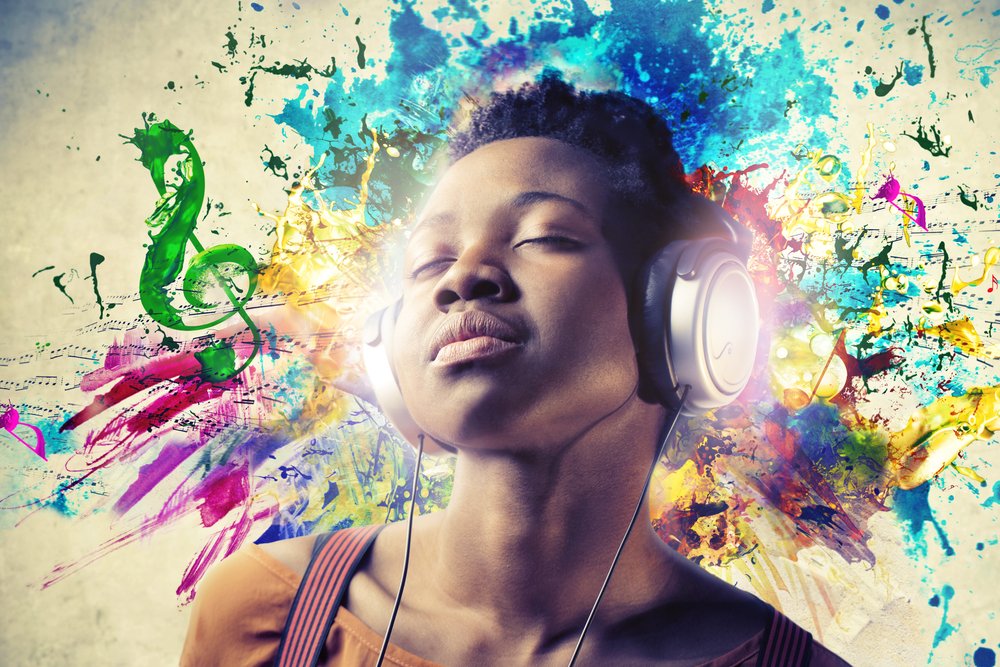The feelings humans derive from music are complex and can vary depending on the individual, the type of music being listened to, and the context in which it is being played.
Music has a profound ability to evoke emotions, ranging from joy and excitement to nostalgia and melancholy. It taps into a universal language that resonates with individuals, creating a unique and subjective experience for each listener. The interplay of melody, rhythm, and lyrics can elicit a wide spectrum of feelings, providing a powerful means of expression and connection.
The medium through which humans listen to music can influence their emotional experience. While personal preferences vary, many people find that high-quality audio systems, such as quality speakers or headphones, provide a more immersive and detailed listening experience, enhancing the emotional impact of the music. However, the emotional connection ultimately depends on individual preferences and the context in which the music is enjoyed.

The duration of the emotional impact of music varies among individuals. High emotional responses to music can trigger the release of neurotransmitters like dopamine, affecting mood and pleasure. The lingering effect may depend on personal sensitivity, the intensity of the experience, and individual resilience to emotional stimuli.
However, there are several common emotional responses to music that humans often report:
Pleasure: Listening to music can produce a feeling of pleasure or enjoyment. This is often described as a “feel-good” sensation that can boost mood and overall well-being.
Nostalgia: Music has the ability to evoke memories and transport us back to specific times and places in our lives. Listening to music that we associate with happy memories can produce feelings of nostalgia and emotional connection.
Relaxation: Music has been shown to have a calming effect on the body and mind. Listening to slow, soothing music can reduce stress and anxiety and promote relaxation.
Empathy: Music can also produce feelings of empathy and emotional connection with other people. This is often seen in contexts such as concerts or live performances, where a group of people come together to share a musical experience.
Inspiration: Listening to music can also inspire creativity, motivation, and a sense of purpose. Certain types of music or lyrics can resonate with individuals and provide a sense of direction or inspiration.
Overall, the feelings humans derive from music are complex and can encompass a wide range of emotions, from pleasure and nostalgia to empathy and inspiration.

Comparing the response of water to vibration with the reaction to music, one might draw parallels in terms of fluidity and resonance. Similar to how vibrations in water create ripples and patterns, music resonates with human emotions, creating waves of feelings that can be gentle or intense. The ebb and flow of melodies and rhythms in music can be likened to the dynamic movements and responses observed when vibrations interact with water, creating a fluid and emotional experience.
Water molecules can be set into motion by mechanical vibrations or waves. When water is subjected to vibration, it absorbs the mechanical energy, and the molecules start to oscillate around their equilibrium positions. As the vibration energy increases, the amplitude of the oscillation increases, and the water molecules move more vigorously.
In general, the effect of the vibration on water depends on the frequency and intensity of the vibration. At lower frequencies, the water molecules tend to move in a more uniform motion, whereas at higher frequencies, the water molecules start to experience more chaotic and random motions. At extremely high frequencies, the water molecules break apart, and the water becomes ionized.
Water can also exhibit several interesting physical phenomena when subjected to vibrations, such as surface waves, resonance, and cavitation. These phenomena can have significant practical applications in different fields, such as acoustics, medical imaging, and engineering.

When music interacts with music soul, it can create a variety of effects and interactions, depending on how they are combined or intertwined. Here are a few ways in which music can react to other music:
Harmonization: When two or more musical elements combine in a way that creates harmonic or melodic coherence, they can harmonize with each other. This can create a rich and layered sound that enhances the overall musical experience.
Counterpoint: This refers to the simultaneous sounding of different melodies or musical lines. When multiple melodies or musical lines interact in a contrapuntal manner, they can create a complex and intricate texture.
Call and response: In this musical interaction, one musical phrase or melody is played or sung, and another musical phrase responds to it. This technique is often used in many genres, such as blues, gospel, and folk music.
Collaboration: When musicians from different backgrounds or genres come together to create music, their individual styles and techniques blend and interact to create a unique sound. This can result in the fusion of different musical genres, such as jazz fusion or classical crossover.
Sampling and remixing: With the advent of technology, music producers can take samples or excerpts from existing songs or recordings and manipulate or remix them to create new musical compositions. This allows for creative interactions between different musical elements.
Convergence of styles: Music can react to music when different musical styles come together and influence each other. For example, the blending of traditional African rhythms with Western pop music in genres like Afrobeat or the fusion of hip-hop and rock in rap rock.
Variation and development: Musicians may take an existing musical theme or motif and vary it throughout a composition, exploring different possibilities and developments. This creates an interactive relationship between different sections or parts of a piece.
Overall, when music interacts with music, it can result in a wide range of effects and outcomes, from harmonious and complementary combinations to contrasting or contrasting interactions that challenge listeners’ expectations and perceptions.

How humans respond to music Humans and animals can react to good music in several ways, often demonstrating emotional responses to various aspects of the music. Here are a few examples:
Physical Movement: Humans often move to music, tapping their feet, nodding their heads, or dancing. Similarly, some animals, such as dogs or horses, may move their bodies in response to music they enjoy.
Improved Mood: Listening to good music can also have a positive effect on one’s mood. It can reduce anxiety, stress, and depression, as well as improve overall feelings of well-being.
Improved Learning and Memory: Studies have shown that music can enhance memory and improve learning, especially when studying or working on a task.
Increased Heart Rate: Good music can also have a physiological response in humans and animals, such as increasing one’s heart rate or blood pressure.
Overall, humans and animals can react positively to good music, often demonstrating both emotional and physical responses to the music.









